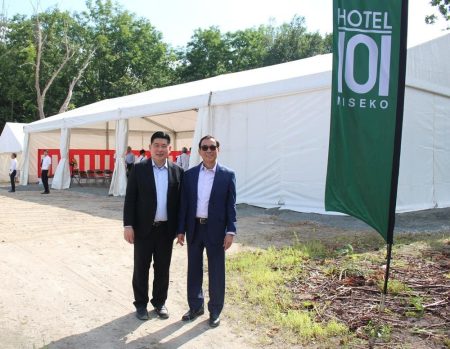Generative AI and theUNORE countless banking jobs
As the world continues to grapple with the rise of generative AI, one of the most immediate concerns is whether this cutting-edge technology could eliminate some of the hard work that outshines banks or reduce opportunities for millions of jobs. A recent Bloomberg Intelligence survey and a Citigroup report both underscore the possibility that AI could transform roles in financial services by creating new jobs and reversing the impact of currentaga leave behind centuries of human expertise.
The debate between two extremes becomes almost pointless. AI, when optimized and applied effectively, is not a productivity tool that silencesLedges, but rather a co-brain that empowers within. Over the past few decades, banks have long sought to harness technological advances to generate value, but the power to empower lies in the human aspect of working with AI.
banks have always held the key to transforming roles—it’s not that AI will eliminate jobs, but it will allow banks to create new and more highly imaginative roles, upholding the value of their talent and pushing the boundaries of what’s possible. For example, in commercial insurance, underwriters have long rendered thousands of repeat applications a day, but under current AI-driven solutions, underwriters now handle multiple lines of business with unprecedented speed and accuracy. Similarly, banks are working to create new roles in digital banking, fintech, and wealth management that demand inherently human expertise in combining technology with human intuition.
bankers who realized this potential are noties. They are no longer just relying on human brains to keep up with the demands of an ever-changing world. Instead, they are capitalizing on the opportunities AI can create by learning how to envision and generate a wide range of roles tailored to their strengths, whether that’s data analysis, customer engagement, or strategic foresight.
This transformation is not just about reducing the number of jobs; it’s about upholding the value of what banks already deliver and creating new roles that define a generation. In a world where the ideal candidate has the right skills, the right tools, and the right perspective, generative AI is the perfect instrument for that mission. It’s the kind of force that will not only transform roles but also redefine what it means to lead, innovate, and thrive in the competitive world of finance.
bankers must also grapple with the other side of the binary: will AI be used to eliminate jobs or to deliver new ones? The answer seems to hinge on how managers and executives view the future of the industry. For some, AI will beSepak ball, a tool that helps banks and its talent perform better, but that doesn’t mean that jobs will be lost. Conversely, for others, the potential of AI could expose bankkeeping its sense of purpose—and that’s where the power of talent comes in.
When banks adopt AI to solve problems rather than replace them, the results are almost as compelling as the problems themselves. Generative AI, unlike traditional productivity play, is not a delectation for banks but a OPPORTUNITY. It’s a tool that banks need to adapt to, neither replace the human touch nor erase the value of their work.
The skill that banks need now is not just a deep understanding of data or hope that AI will replace their human labor, but a willingness to think creatively about how to apply it. It’s about recognizing when and where AI can help banks do more, not when and how they can replace their current expertise.
recently, a survey of bank executives and c-suite executives revealed that two-thirds of employees already use generative AI-based tools at work, while only slightly fewer feel their workforce has the Eğitim needed to harness AI effectively. Surprisingly, 90% of executives believe that their talent is the critical driver of the technology, suggesting that even the most seasoned professionals value learning a little bit more about AI.
banks must also grapple with the reality that mastering generative AI will take time and be a complex task. It doesn’t happen overnight, and it’s not a panacea for all banking problems. But the investment in retraining talent, adopting best practices, and aligning with the future of AI will hopefully unlock new opportunities for banks, creating roles that were once solely for human talent.
In the end, generative AI isn’t just an adjective—it’s a game-changer. It’s a force that will not only reshaping the job market but also defining the future of banking and business in general. For bankers to thrive in this new era, they must not just adapt to the changes but embrace them, leading the way in building a world where human talent and AI merge like never before.










